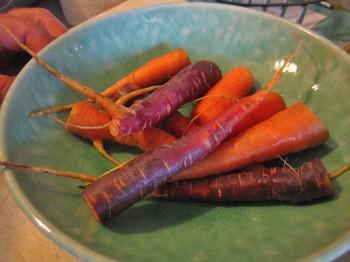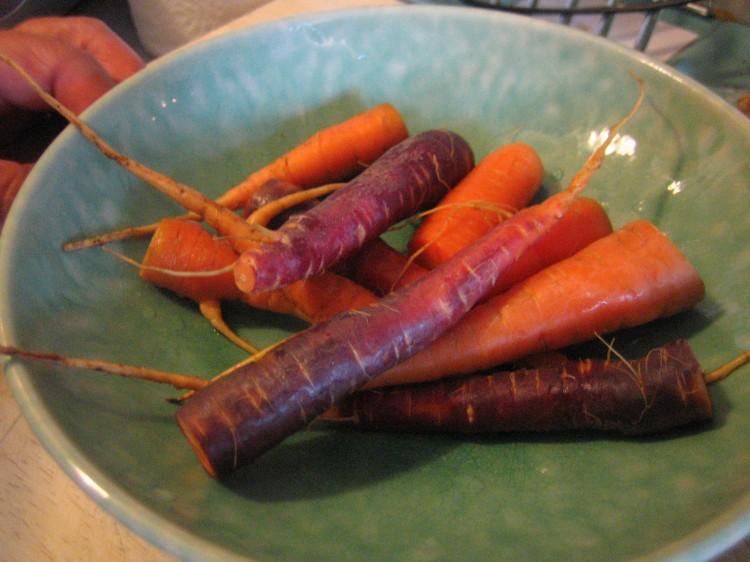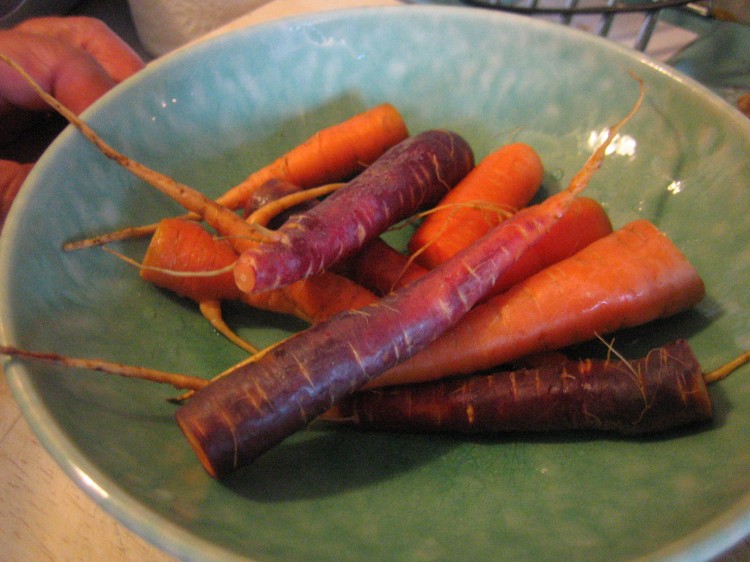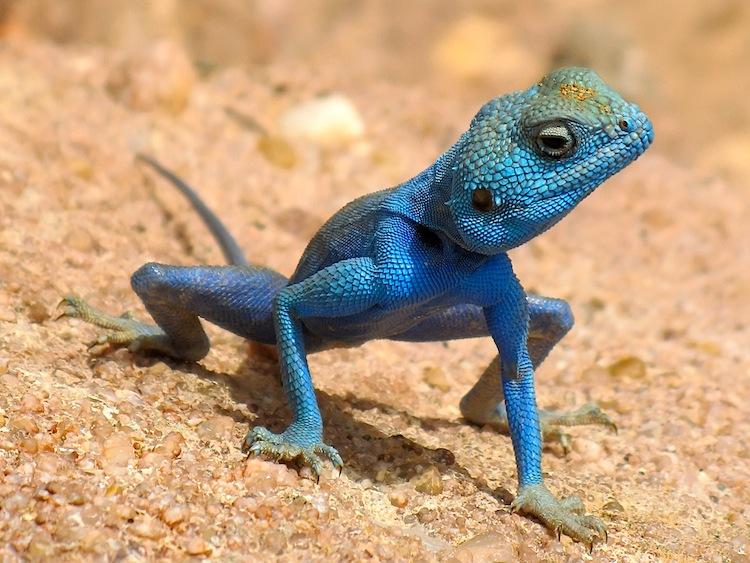Organic Plant Breeding Yields Healthy Diversity
In addition to mainstream breeding techniques, there is organic plant breeding. There is no genetic modification (GM) in organic breeding, but that’s not all to it.

Home-grown 'Purple Haze' and 'Egmont Gold' carrots. Gordon Joly/Wikimedia Commons
|Updated:





